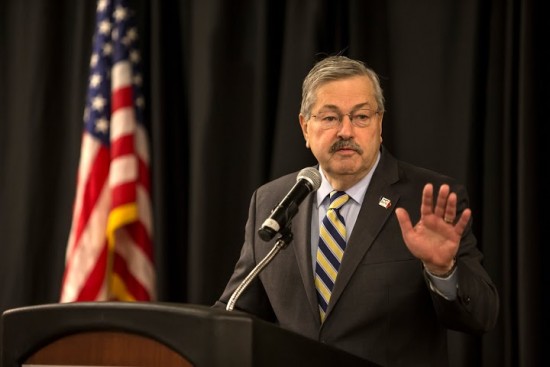By Hannah Soyer
In the week following the presidential election, New York Gov. Andrew Cuomo released a statement condemning the rise of hateful acts and violence. “Let me be very clear,” he said. “These acts of hate and intolerance go against everything New York stands for. We have welcomed generations of immigrants with open arms. This state will continue that proud legacy — we will not turn our backs, and we will not let this heated rhetoric divide us. We will stand strong united in the face of intolerance and show the world that we are one people, one family, and one New York.”
Earlier that same week, Cuomo launched a toll-free hotline to reports incidents of discrimination and bias. He has also released several more statements regarding violence since the election. In fact, he released one Monday, condemning an incident that morning in which someone assaulted an off-duty Muslim New York City Transit employee, called her a “terrorist” and pushed her down the stairs, injuring her knee and ankle.
In comparison, Iowa Gov. Terry Branstad has not made any sort of statements following the election to condemn such acts of hatred and violence. This isn’t all that surprising, considering Branstad has voiced his support for President-elect Donald Trump numerous times, and he is probably feeling happy, not threatened or fearful, in the wake of the election. After the video of Trump bragging about grabbing women’s genitals was released, Branstad said Trump’s comments were “reprehensible,” but that this did not change his support. It makes sense, then, that Branstad would be able to turn a blind eye to the hate-fueled actions happening. However, it is crucial that he do not do so.
I understand that Iowa and New York are vastly different states with vastly different cultures. However, speaking out against hate and violence shouldn’t be something that is solely done by more traditionally liberal officials. Intimidating, attacking, and injuring people based on their identity should not be a partisan issue; it should be something that all of us, especially those in positions of authority, speak out against, no matter where we fall on the political spectrum. And if we fall in a place on the political spectrum where we believe that such acts are acceptable and shouldn’t be spoken out against, then such a position on the spectrum is deeply flawed. I don’t know Branstad personally, and while it does not give me much hope knowing how strong of a Trump supporter he is, I would hope that the governor of Iowa does not believe that such acts are acceptable. After all, he was elected to represent all of us, not just some of us.
Turning a blind eye to hate and violence doesn’t just not make it go away, it encourages violent hateful acts by showing the people who are committing such aggressions that they can get away with it devoid of consequences. On top of this, it sends a chilling message to those who are being threatened and discriminated against. It tells them, “You do not matter. Your experiences are not valid and will not be taken seriously.”
This is not the Iowa that I want to live in, and I hope it is not the Iowa that Branstad wants to govern. It is time that he speaks out publicly against hateful actions.



